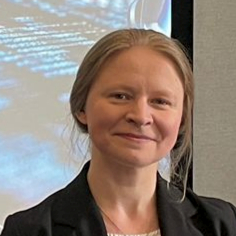Universities love to talk about innovation. Pedagogical innovation is framed as a necessity in an era of rapid change, yet those expected to enact it – academics – are caught in an identity crisis.
In our research on post-pandemic pedagogical innovation, we found that the decision to engage with or resist innovation is not just about workload, resources, or institutional strategy. It’s about identity – who academics see themselves as, how they are valued within their institutions, and what risks they perceive in stepping beyond the status quo.
Academics are asked to be both risk-taking pedagogical entrepreneurs and compliant employees within increasingly bureaucratic, metric-driven institutions. This paradox creates what we call the moral wiggle room of innovation – a space where educators justify disengagement, not necessarily because they oppose change, but because their institutional environment does not meaningfully reward it.
The paradox of pedagogical innovation
During the pandemic, universities celebrated those who embraced new digital tools, hybrid learning, and flexible teaching formats. “Necessity breeds innovation” became the dominant narrative. Yet, as the crisis has subsided, many of these same institutions have reverted to rigid processes, managerial oversight, and bureaucratic hurdles, making innovation feel like an uphill battle.
On paper, universities support innovation. Education strategies abound with commitments to “transformative learning experiences” and “sector-leading digital education.” However, in practice, academics face competing pressures – expectations to drive innovation while being weighed down by institutional inertia.
The challenge is not just about introducing innovation but sustaining it in ways that foster long-term change. While institutions may advocate for pedagogical innovation, the reality for many educators is a system that does not provide the necessary time, support, or recognition to make such innovation a viable, sustained effort.
The result? Many feel disillusioned. As one academic in our research put it:
I definitely think there’s a drive to be more innovative, but it feels like a marketized approach. It’s not tangible – I can’t say, ‘Oh, they’re really supporting me to be more innovative.’ There’s no clear pathway, no structured process.
Academic at a post-92 university
For some, engaging in pedagogical innovation is a source of professional fulfilment. For others, it is a career gamble. Whether academics choose to innovate or resist depends largely on how their identity aligns with institutional structures, career incentives, and personal values.
Three identity tensions shaping pedagogical innovation
Regulated versus self-directed identity Institutions shape identity through expectations: teaching excellence frameworks, fellowship accreditations, and workload models dictate what “counts” in an academic career. Yet, many educators see their professional identity as self-driven – rooted in disciplinary expertise and a commitment to students. When institutional definitions of innovation clash with personal motivations, resistance emerges.
As one participant put it:
When you’re (personally) at the forefront of classroom innovation…you’re constantly looking outwards for ideas. Within the institution, there isn’t really anyone I can go to and say, ‘What are you doing differently?’ It’s more about stumbling upon people rather than having a proactive approach to being innovative. I think there’s a drive for PI, but it feels like a marketised approach.
Academic at a post-92 university
For some, innovation is an extension of their identity as educators; for others, it is a compliance exercise – an expectation imposed from above rather than a meaningful pursuit.
This tension is explored in Wonkhe’s discussion of institutional silos, which highlights how universities often create structures that inadvertently restrict collaboration and cross-disciplinary innovation, making it harder for educators to engage with meaningful change.
Risk versus reward in academic careers Engaging in pedagogical innovation takes time and effort. For those on teaching and scholarship contracts, it is often an expectation. For research and scholarship colleagues, it is rarely a career priority.
Despite strategic commitments to pedagogical innovation, career incentives in many institutions still favour traditional research outputs over pedagogical experimentation. The opportunity cost is real – why invest in something that holds little weight in promotions or workload models?
As one academic reflected:
I prioritise what has immediate impact. Another teaching award isn’t a priority. Another publication directly benefits my CV.
Senior leader at a Russell Group university
Until pedagogical I is properly recognised in career progression, it will remain a secondary priority for many. As explored on Wonkhe here, the question is not just whether innovation happens but whether institutions create environments that allow it to spread. Without clear incentives, pedagogical innovation remains the domain of the few rather than an embedded part of academic practice.
Autonomy versus bureaucracy Academics value autonomy. It is one of the biggest predictors of job satisfaction in higher education. Yet pedagogical innovation is often entangled in institutional bureaucracy (perceived or real) through slow approval processes, administrative hurdles, and performance monitoring.
The pandemic showed that universities can be agile. But many educators now feel that flexibility has been replaced by managerialism, stifling creativity.
I’ve had people in my office almost crying at the amount of paperwork just to get an innovation through. People get the message: don’t bother.
Senior leader at a Russell Group university
To counteract this, as one educator put it:
It’s better to ask forgiveness afterwards than ask permission beforehand.
Senior leader at a Russell Group university
This kind of strategic rule-bending highlights the frustration many educators feel – a desire to innovate constrained by institutional red tape.
Mark Andrews, in a Wonkhe article here, argues that institutions need to focus on making education work rather than simply implementing digital tools for their own sake. The same logic applies to pedagogical innovation – if the focus is solely on regulation, innovation will always struggle to take root.
Beyond the rhetoric: what needs to change
If universities want sustained innovation, they must address these identity tensions. Pedagogical innovation needs to be rewarded in promotions, supported through streamlined processes, and recognised as legitimate academic work – not an optional extra.
This issue of curriculum transformation was explored on Wonkhe here, raising the critical question of how universities can move beyond rhetoric and make change a reality.
The post-pandemic university is at a crossroads. Will pedagogical innovation be institutionalised in meaningful ways, or will it remain a talking point rather than a transformation? Academics are already navigating an identity crisis – caught between structural constraints, career incentives, and their own motivations. Universities must decide whether to ease that tension or allow it to widen.














